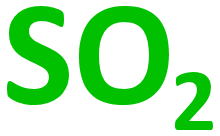In these days of concern for our planet and concern for our own inner well-being we are quite used to seeking out cruelty-free meat from reputable butchers, fish from sustainable sources and reassuringly specky fruit and veg from farmers’ markets. It is inevitable that the same concerns will start to inform people’s choice of wines, and this is expressed in the demand for organic wine.
As one, unhelpfully, asks when presented with a request for organic wine – what isn’t organic about a good bottle of wine? You need some grapes and the best grapes you can get will be grown as naturally as possible, add some yeast (although, increasingly these days, you use the yeast that’s already helpfully growing on the grape skin) and wine comes out the other end. In essence it’s quite simple. In fact, the nearer you stick to that over-simplified wine-making process, the better your wine will be, which is why we say that the all the best wines are more or less organic.
But, of course, it’s not quite as simple as that. There are all manner of vineyard treatments, a surprising amount of which are not outlawed in organic viticulture, and processes in the winery to protect the must and the finished wine. So, imbibers have a right to ponder the constitution of their evening tipple.
The number one bogie-man “additive” of concern these days is sulphur dioxide. “Contains Sulphites” it says on every bottle of wine on our shelves. Sounds dangerous and scientific and not terribly good for your delicate innards. Sulphur dioxide has been used for centuries (literally centuries – the Romans knew all about it) as an anti-oxidant and anti-bacterial agent. The irony, in this age when we worry so much about it, is that the amounts used today are so much smaller than they’ve ever been – we now have men in white coats accurately calculating the precise minimum amount we need rather than some brawny peasant just chucking in handfuls of the stuff. It’s perfectly allowable in any organic regime because it is next to impossible to make a stable bottle of wine without it.
Back to “Organic Wine” – all certification schemes concern themselves only with organic viticulture – that is, the vineyard itself. Of course, the health of one’s vineyard is a vital factor in the production of good wine, but it is worth remembering that the word “organic” on the label offers no guarantees of good practice in the winery. Indeed, we much prefer the guarantee of dealing with small, quality-conscious producers that we know well. We tend to eschew wines labelled as “organic” believing that value, quality and taste are more important than carrying marketable wording on the label. And small may be the key. If you are running an enormous, factory-sized winery, shipping in grapes from hundreds of miles away and pumping wines from enormous stainless-steel tank to enormous stainless-steel tank, not to mention the need to produce a consistent product over tens of thousands of cases of wine, there will be more need to intervene in the natural process. Smaller producers, whose grapes come from their immediate surroundings, whose wineries are compact and who can produce a diverse and interesting range can afford to intervene less.
Many of our producers practice what the French call La Lutte Raisonnée – the reasoned struggle. It is, essentially, mostly organic except for when circumstances dictate otherwise. If you think about it, that’s how most of us healthy types live – we eat healthy food, we exercise, we swallow various complimentary potions to keep ourselves pure and cleansed but, if we get sick, off to the Doctors’ we go and spend a week or so popping some “unnatural” pills until the infection clears up. It’s the same with a vineyard – grow all sorts of cover crops, only use natural treatments, replace your tractor with horses, but if the vines get diseased fetch in the vine doctor with a quick burst of something restorative.
But there are those that do go the whole hog and make their wines organically. Not to obtain any certification, or as a selling point in itself. Indeed, none have any official certification of organicness, or seek it, and none bear the word on the label. This is all in the pursuit of making better wine. Consult this list here to browse from our organic/biodynamic selection.
Beyond organic viticulture is the stricter world of biodynamics. Biodynamic farming was developed by Rudolf Steiner and concerns itself with a holistic approach to the health of the soil. For as much as some of the methodology seems slightly eccentric, it is impossible to follow a biodynamic regime without taking scrupulous care of your vineyard and, so, the results have been encouraging and the practices continue to spread. Ch Pontet-Canet recently became the first classed-growth property in Bordeaux to convert to biodynamic viticulture; it is gaining ground in Burgundy, check out the wines of Domaines Comte Armand and Chandon de Briailles; we also have the excellent biodynamic wines of Marcel Deiss in Alsace, Poggerino in Tuscany and Rippon in New Zealand.



